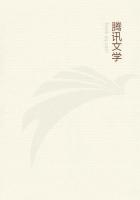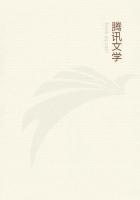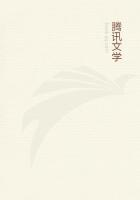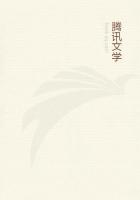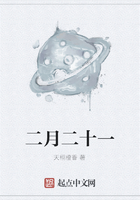Ah, that is the old question, which our Lord answered long ago, and said, "Be not anxious what ye shall eat or what ye shall drink, or wherewithal you shall be clothed. For after all these things do the heathen seek, and your Heavenly Father knoweth that ye have need of these things. But seek ye first the kingdom of God and His righteousness, and all these things shall be added to you." A few, very few, people have taken that advice. But they have been just the salt of the earth, which has kept mankind from decaying.
But what has that to do with it?
See. You are a living thing, you say. Are you a plant?
No.
Are you an animal?
I do not know. Yes. I suppose I am. I eat, and drink, and sleep, just as dogs and cats do.
Yes. There is no denying that. No one knew that better than St.
Paul when he told men that they had a flesh; that is, a body, and an animal's nature in them. But St. Paul told them--of course he was not the first to say so, for all the wise heathens have known that--that there was something more in us, which he called a spirit. Some call it now the moral sentiment, some one thing, some another, but we will keep to the old word: we shall not find a better.
Yes, I know that I have a spirit, a soul.
Better to say that you are a spirit. But what does St. Paul say?
That our spirit is to conquer our flesh, and keep it down. That the man in us, in short, which is made in the likeness of God, is to conquer the animal in us, which is made in the likeness of the dog and the cat, and sometimes (I fear) in the likeness of the ape or the pig. You would not wish to be like a cat, much less like an ape or a pig?
Of course not.
Then do not copy them, by competing and struggling for existence against other people.
What do you mean?
Did you never watch the pigs feeding?
Yes, and how they grudge and quarrel, and shove each other's noses out of the trough, and even bite each other because they are so jealous which shall get most.
That is it. And how the biggest pig drives the others away, and would starve them while he got fat, if the man did not drive him off in his turn.
Oh, yes; I know.
Then no wiser than those pigs are worldly men who compete, and grudge, and struggle with each other, which shall get most money, most fame, most power over their fellow-men. They will tell you, my child, that that is the true philosophy, and the true wisdom; that competition is the natural law of society, and the source of wealth and prosperity. Do not you listen to them. That is the wisdom of this world, which the flesh teaches the animals; and those who follow it, like the animals, will perish. Such men are not even as wise as Sweep the retriever.
Not as wise as Sweep?
Not they. Sweep will not take away Victor's bone, though he is ten times as big as Victor, and could kill him in a moment; and when he catches a rabbit, does he eat it himself?
Of course not; he brings it and lays it down at our feet.
Because he likes better to do his duty, and be praised for it, than to eat the rabbit, dearly as he longs to eat it.
But he is only an animal. Who taught him to be generous, and dutiful, and faithful?
Who, indeed! Not we, you know that, for he has grown up with us since a puppy. How he learnt it, and his parents before him, is a mystery, of which we can only say, God has taught them, we know not how. But see what has happened--that just because dogs have learnt not to be selfish and to compete--that is, have become civilised and tame--therefore we let them live with us, and love them. Because they try to be good in their ****** way, therefore they too have all things added to them, and live far happier, and more comfortable lives than the selfish wolf and fox.
But why have not all animals found out that?
I cannot tell: there may be wise animals and foolish animals, as there are wise and foolish men. Indeed there are. I see a very wise animal there, who never competes; for she has learned something of the golden lesson--that it is more blessed to give than to receive; and she acts on what she has learnt, all day long.
Which do you mean? Why, that is a bee.
Yes, it is a bee: and I wish I were as worthy in my place as that bee is in hers. I wish I could act up as well as she does to the true wisdom, which is self-sacrifice. For whom is that bee working? For herself? If that was all, she only needs to suck the honey as she goes. But she is storing up the wax under her stomach, and bee-bread in her thighs--for whom? Not for herself only, or even for her own children: but for the children of another bee, her queen. For them she labours all day long, builds for them, feeds them, nurses them, spends her love and cunning on them. So does that ant on the path. She is carrying home that stick to build for other ants' children. So do the white ants in the tropics. They have learnt not to compete, but to help each other; not to be selfish, but to sacrifice themselves; and therefore they are strong.
But you told me once that ants would fight and plunder each other's nests. And once we saw two hives of bees fighting in the air, and falling dead by dozens.
My child, do not men fight, and kill each other by thousands with sharp shot and cold steel, because, though they have learnt the virtue of patriotism, they have not yet learnt that of humanity?
We must not blame the bees and ants if they are no wiser than men.

